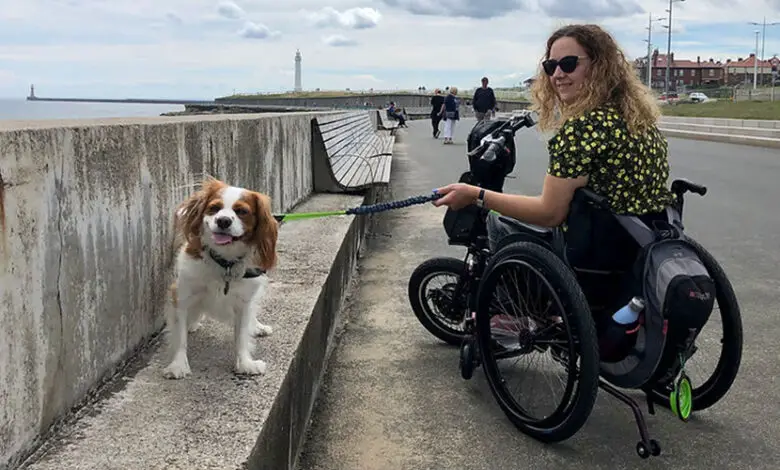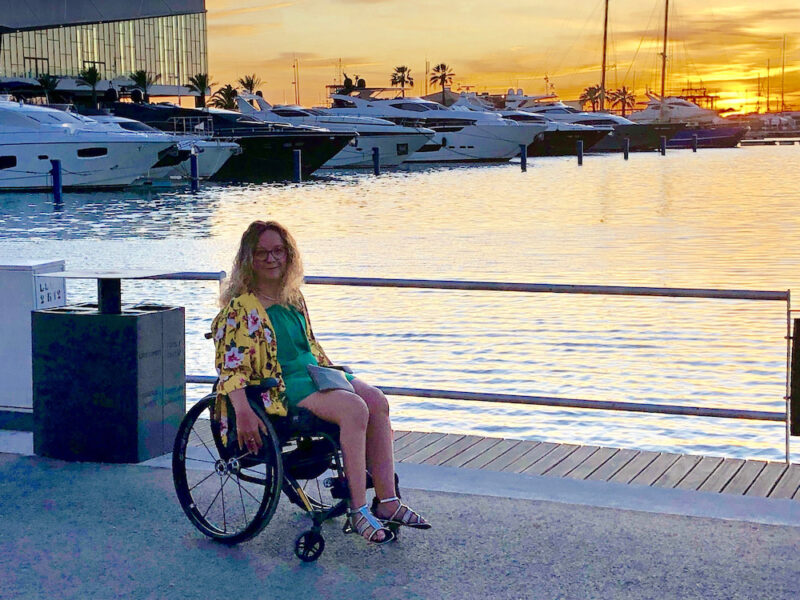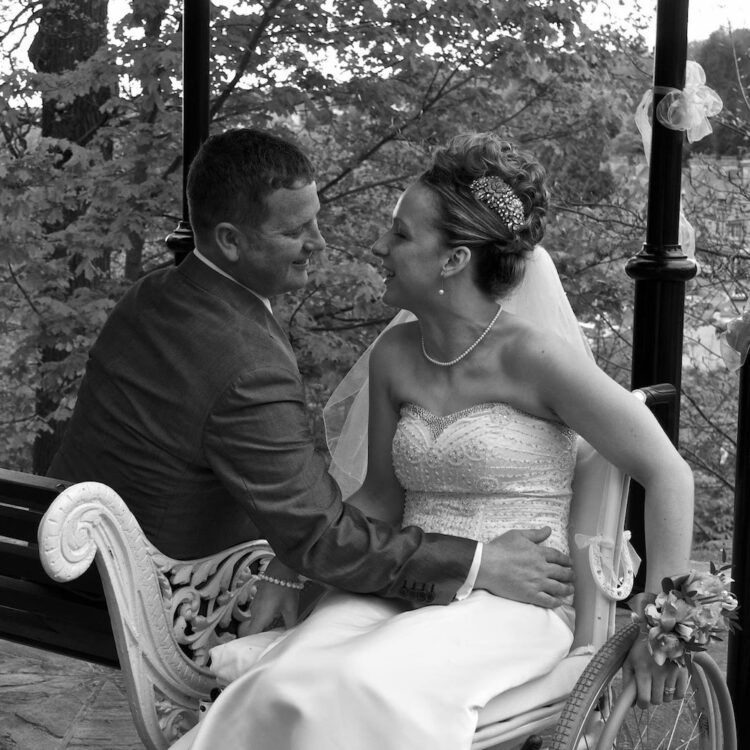
5 things not to say to a disabled traveller
We’ve all encountered those awkward and unnecessary questions and comments from people about our disability or health condition. It’s bad enough when you’re in your own country, but what about when you travel abroad. Here, travel blogger Carrie-Ann Lightley, shares her post on 5 things she’s had said to her when travelling.
From questions about my medical condition to offers of miracle cures and declarations of how ‘brave’ and ‘lucky’ I am, I round up five things not to say to a disabled traveller.
But before I start, I know what you’re thinking. Here she is again, that wild-haired, wheelchair-using woman, moaning about all of the things people say that offend her…
I know that, mostly, strangers who say things without thinking are well-meaning. We’re all guilty of saying something daft when we feel a bit awkward, me included!
But when you’re disabled, there are certain things that people say to you time and time again – you get so used to hearing them that you’re almost expecting it.
Then there are the questions or statements that are so shocking, you can’t quite believe a stranger just said that. You get flustered and mumble a response, and then spend the next five hours mentally coming up with slaying comebacks.
Travel, in particular, seems to magnify these situations, whether it be on a stressful commute when someone projects their irritation on to you, or a relaxed holiday when someone says something so unthinking, you wonder if they’ve left their brain at home.
You’re very brave to be travelling alone as a disabled person
I travel on my own, for work, usually by train, pretty much every week. It’s not always easy – assistance fails happen, crowded trains happen, luggage and buggies in wheelchair spaces happen. But, honestly, isn’t train travel pretty stressful for everyone, at least some of the time?
Public transport can bring out the worst in people, and often we see the more selfish side of others when seats are limited or timetables are delayed.
None of us can control how other people see us, and if someone admires the independence of a wheelchair user travelling alone, I don’t have a problem with that. But please, don’t tell me I’m brave; I’m just going about my everyday life like everyone else.
How do you manage to travel in a wheelchair?

The reason I started blogging was to share my travel experiences with others, to show that accessible travel IS possible.
If you’re a disabled person who wants to know about the best accessible restaurants I found on a recent trip, or my favourite accessible dog walking routes, or which hotels I recommend with wheelchair accessible rooms, I’ll always be happy to chat.
However, if you’re a stranger asking me how I manage to travel out of morbid curiosity – well you’re just going to piss me off.
We’ve come a long way from disabled people appearing in 19th century freak shows, and we shouldn’t be made to feel like some twisted form of entertainment for the ill-mannered non-disabled people among us.
What’s wrong with you then, love?
In my experience, this one is favoured by a particular brand of rude taxi driver. Maybe they’re bored, maybe they just don’t know what else to say, maybe they think it’s perfectly acceptable to ask a complete stranger for their medical history? I don’t know. What I do know is, this question is never ok. Never.
My favourite answers range from elaborate stories about thrill-seeking activities gone wrong, to “I have a highly contagious disease”, or “Oh I’m just really hungover today”, and the ultimate conversation shut down “Nothing, what’s wrong with you?”
God has told me that he’d like me to heal you
This one isn’t exclusive to travel, but I have two very vivid memories of people enforcing prayer on me; once, in the supermarket at a train station, and another time in – of all places – a hotel sauna. These conversations have affected me so much that I remember them, years later, word-for-word.
I am, very happily, not a religious person. Those who embrace religion, I’m also very happy for. Some people’s lives are greatly enhanced by the power of prayer; my life is greatly enhanced by the power of gin.
The upsetting part for me is the inference that I want to be healed, that my life must be so awful that I’m just waiting for the chance to be miraculously cured in the ready meal aisle at M&S.
I LOVE my life – wonky, uncooperative, wheelchair-using body and all – I wouldn’t be the person that I am without cerebral palsy, and I wouldn’t want to be anyone else.
Aren’t you lucky to have a husband?
This is a direct quote from a woman I met on my most recent holiday in Portugal. My response was, “Go and spend 10 minutes with him, then come back and tell me how lucky I am…” (It was a joke, Darren, I love you).
It felt particularly intrusive as I was sat in the sunshine, engrossed in a book, sipping a cocktail – not giving off any kind of vibe that said I wanted to speak to a stranger. Still, this woman thought it a good idea to pull up a chair and tell me how fortunate I am that Darren decided to put a ring on it, despite the fact that I use a wheelchair.

I AM lucky to have Darren. He’s (obviously) lucky to have me. Disability just doesn’t come into it. We both have strengths and weaknesses, skills and things we’re not so good at – I make all the travel plans, he puts the bins out. We’re a team, a partnership; just like any other relationship.
So what can I say?
You might be reading this thinking, well I’m just never going to speak to another disabled person again, you’re offended by everything! Honestly, we’re not.
By all means, ask me if there’s anything you can do to help me – but don’t be surprised or offended if I say thank you, I’m ok.
Ask me something completely unrelated to my disability – I’m a person too, my thoughts and interests don’t just extend to wheelchair ramps and accessible toilets.
Definitely tell me if my hair looks good – compliments may not get you everywhere in life, but they’ll make the recipient feel great!
And the number one question that will get a positive answer from me – “Can I buy you a drink?” – Because my mum always taught me that it’s rude to answer that with anything other than yes 🙂
By Carrie-Ann Lightley
More on Disability Horizons…